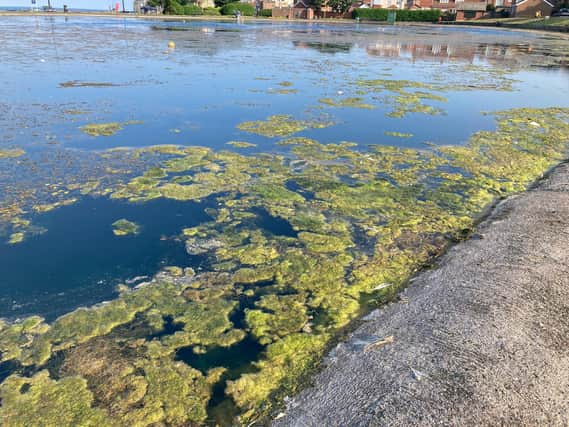Council called to clean up weed-clogged boating lake


Adam Scott, of Longsands Ltd, which runs attractions including a pirate-themed maze, dinosaur adventure golf, inflatable slides, and a café at Tynemouth Park, said its boating lake is clogged with algae and weeds.
Mr Scott said the lake – which is the responsibility of North Tyneside Council who owns the park – has been a problem for several years and means his company can no longer rent out boats due to health and safety fears.
Advertisement
Hide AdAdvertisement
Hide AdNorth Tyneside Council said it hasn’t closed or restricted access to the lake, and that the business decided not to rent out the boats.
The authority said “a number of steps” have been taken to deal with the weeds.
Mr Scott said: “We’ve had this issue with the boating lake for the last three or four years.
“Whatever they [North Tyneside Council] are doing isn’t working. It’s such a shame the lake used to be one of the attractions that the park was well known for and we haven’t been able to use it for three or four years.
Advertisement
Hide AdAdvertisement
Hide Ad“They have been putting this blue dye in the water, which is supposed to reduce the vigorous growth of the weeds. This hasn’t been very effective and has not addressed the underlying problem, meaning the lake is still inoperable.”
Mr Scott said that the park attracted visitors from across the country and the current state of the lake was setting a poor first impression.
He added: “This park should be North Tyneside’s pride and joy, it is such a shame.”
Sam Dand, senior manager for local environmental services at the authority, said a lot of work was being done to tackle the problem.
Advertisement
Hide AdAdvertisement
Hide AdHe said: “We know the lake is a much-loved attraction in Tynemouth so that’s why we are taking a number of steps to tackle the blanket weed issue.
“Ordinarily this native pond plant is a positive addition, an indication of increasing biodiversity. The main growing months for blanket weed are June and July, and the weed growth thrives during sunny conditions.”
This work involved adding a dye to the lake to block light and slow the growth of the weeds.